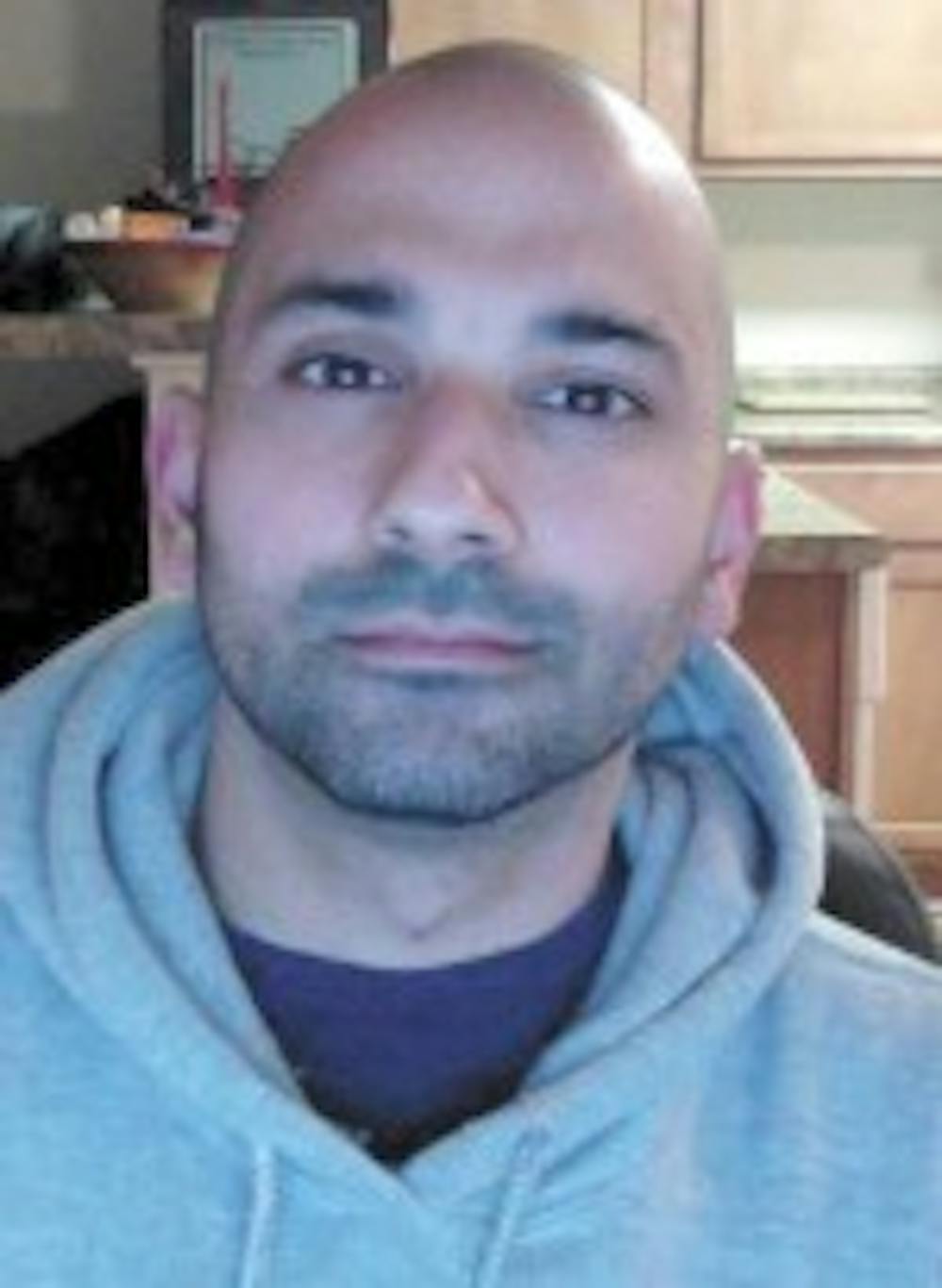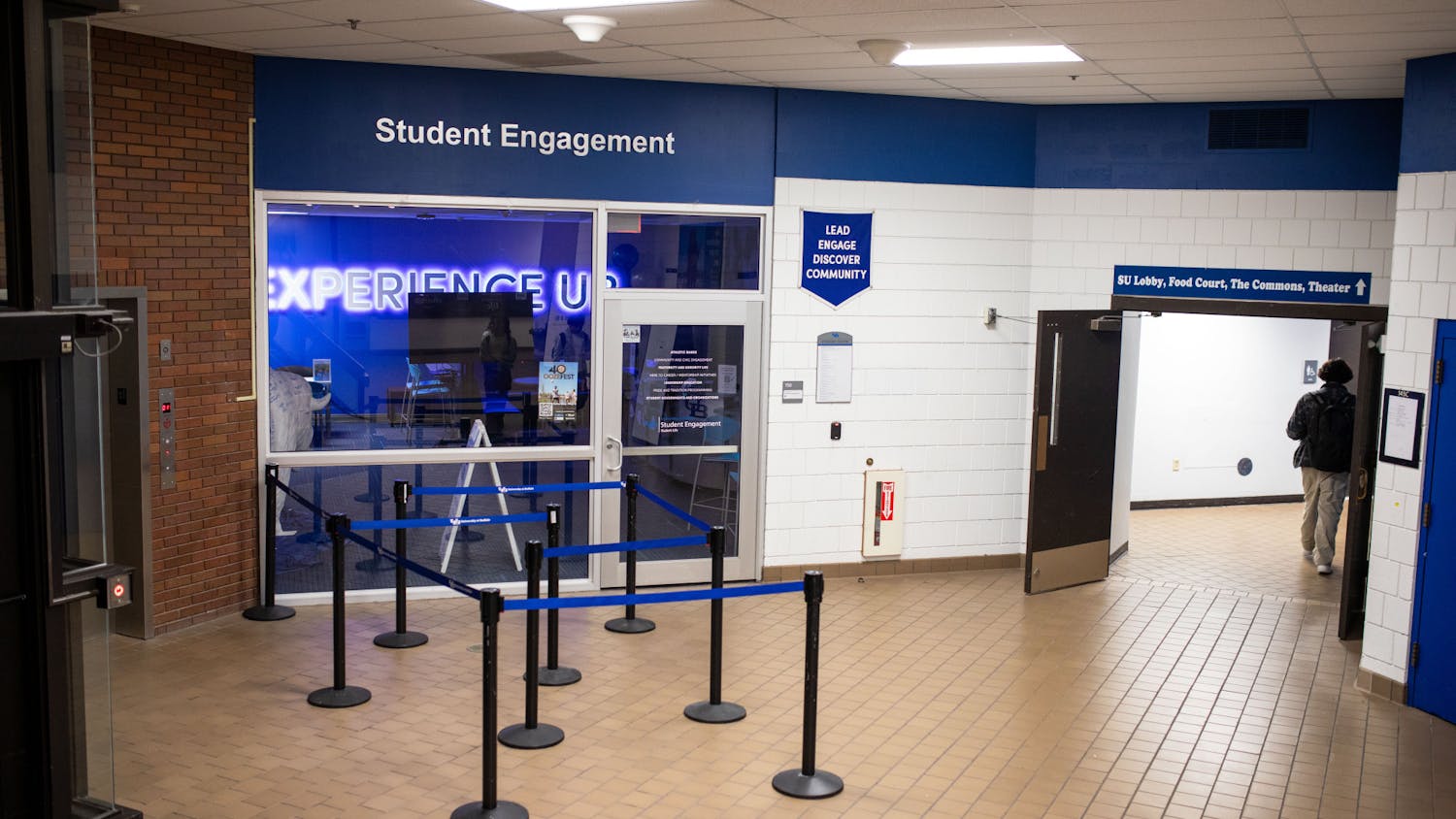To some, rapper MF Doom's lyrics are trivial: "The rest is empty with no brain but the clever nerd/The best emcee with no chain ya ever heard."
To Alex Porco, they're poetry.
The assistant professor of poetry and poetics at the University of North Carolina Wilmington (UNCW) received his Ph.D. from UB in 2011. His focus was rap music.
"What I discovered is people who have been doing work in cognitive psychology and linguistics had developed ways of explaining why rhymes work, but they've never applied it to rap music; they've only applied it to poetry," Porco said.
The 32-year-old, who taught English classes at UB from 2005-11 as a Ph.D. student, doesn't just see rap as poetry. He believes the sounds in rap music that have sent parents into hiding and kids into raptures are actually a form of primal connection.
Humans can connect intimately at a rap concert, he explained.
"You go to this place, and there's this sound that connects everyone there because we all know the lyrics," Porco said. "So you get an actual, real sense of community, an intimacy through sound that you don't get through visual. I see people at the show; that's not what's connecting me to them. It's the fact that - and I mean this in a real way - we're all sharing the vibrations of the music. You can feel it."
Porco, an author of two books of poetry and editor of one, believes elements like rhythm, sound, rhyme and voice matter in how people make meaning of the world.
The Canadian native grew up listening to '90s rappers like Raekwon, Ice Cube and Dr. Dre. He was inspired to study his passion for a living after taking Distinguished English Professor Bruce Jackson's graduate seminar, Oral Poetry from Homer to Tupac.
By fall of 2008, Porco began relentlessly studying the sounds, poetic elements and social meanings in rap music.
Porco spent hours at UB with headphones on, marking stress patterns of lyrics and analyzing rhymes while working toward his dissertation, "Sound off: rhythm, rhyme and voice in rap and hip-hop," which he is currently turning into a book.
He analyzed rap songs like he would a poem. He revealed the wide spectrum of rappers and how their sounds influence listeners in different ways.
In "Straight Outta Compton" by N.W.A., he worked the lyrics "Here's a murder rap to keep you dancin'/ With a crime record like Charles Manson," in an attempt to get inside the artist's frame of mind. Porco found the word "rhyme" is embedded in "crime." He thinks N.W.A. said "record" to refer to not just a musical recording but criminal record. The "dancin'" and "Manson" rhyme is meant to be a comical contrast, contrasting the horrific and L.A.-specific 1969 Manson murders to hip-hop's connection to party culture.
When a rapper rhymes one word with five words, the meaning of the line will register to a listener stronger than rhyming two words, like "breath" and "death."
He also discovered Diddy falls under the category of rappers who purposely use simple rhymes to sell records.
Porco studied the significance of rappers' voices. For instance, Ice Cube seems "threatening" because he uses an angry voice as a gangster rapper, and his lack of complex rhythm patterns is purposeful in avoiding sounding "too artful" - a disconnection from the idea of being a gangster.
Jackson said rap is a vital, oral poetic tradition that Porco "studied exhaustively" and did a "fabulous job with." As his teacher, Jackson said he learned more from Porco than Porco learned from him.
Porco is one of the first people to write a book analyzing the textual elements of rap.
Yet, Porco struggles making people see hip-hop as a legitimate form of study.
Many "raise an eyebrow" when Porco says what he does.
"I was never going to get a job as a hip-hop guy," Porco said. "I had to have something quote on quote, something not legitimate for me, but legitimate for people who hire. They had to know I do traditional poetry and then they would let me do the hip-hop stuff."
Ronan Crowley was a Ph.D. student in the English Department the same time as Porco. Crowley was concerned with explaining and analyzing hip-hop's innovative formal strategies, as much as Porco was interested in why scholars don't usually study hip-hop.
Crowley wonders what that says about "our canons of taste and our sense of literary value."
Hip-hop has actually been studied within academic work in various disciplines for close to 20 years, according to educational leadership and policy professor Gregory J. Dimitriadis - who wrote Performing Identity/Performing Culture (Intersections in Communications and Culture), published in 2001.
The book was about young people and their connection to hip-hop as an alternative curriculum.
He and Jackson were on Porco's dissertation committee, and both described his textual study of rap as "powerful" and "important."
"In my mind the question is: why would you not study hip hop?" Dimitriadis said. "It's become such an important part of people's lives all around the world. How can we ignore it in the academy?"
Porco will be teaching his first hip-hop class next year as a graduate course at UNCW.
His newest infatuation is with stand-up comedy. Though he doesn't know what he is going to do with it yet, he has already started analyzing how comedians deliver their jokes, when they change their voices and when they pause - just like he does with rap.
To Porco, stand-up comedy will just become a part of the negotiation that comes with teaching rap. He finds the academic worth in what others view as simple sects of popular culture.
Email: news@ubspectrum.com





